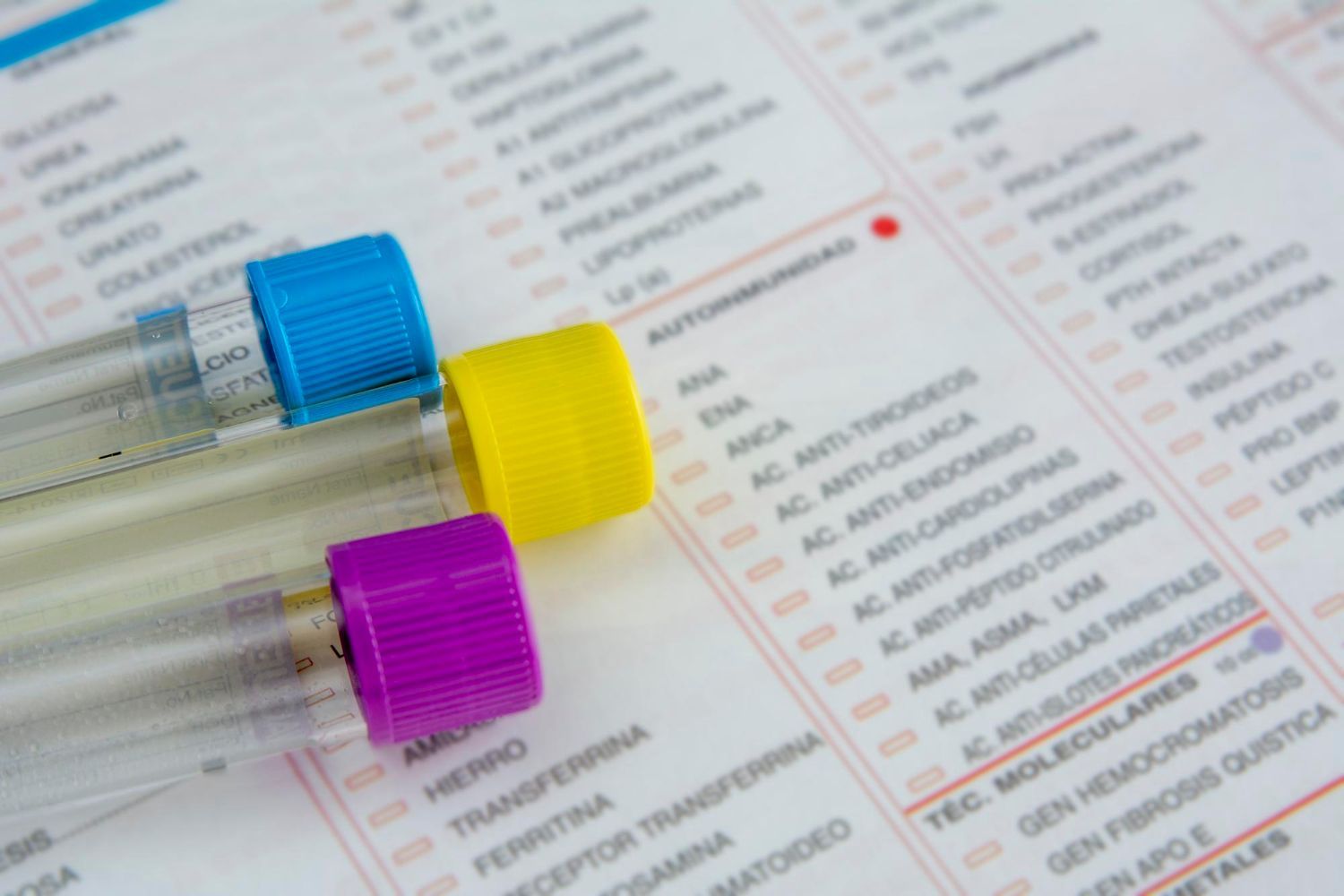What Happens If You Fail a Court-Ordered Drug Test While on Bond?
Written by Law Office of Rolando Cantú, reviewed by Rolando Cantú
What Happens If You Fail a Court-Ordered Drug Test While on Bond? Understanding the Consequences
The violation of a judicial requirement to submit a drug test while out on bond can be a big deal. It will result in the suspension of the bond, a re-arrest, and incarceration until a hearing or a trial. Disregarding the conditions set by the court can make things worse for the defendant since a harsher sentence is likely to be imposed if convicted. Moreover, it can damage the individual image and thus have a negative impact on the negotiations. To not make the legal situation more complex, it is important that people on bond to fully comply with the bond conditions, which include routinely submitting to drug tests.
Navigating the legal system is often an overwhelming task, especially when combined with court orders or bail bonds. Among the set of conditions common in cases like these for those who were granted bail, especially the drug-related offenses, there is always a requirement to remain drug-free and submit to random drug testing. But what if you fail a drug test that is ordered by the court during when you are on bond? Knowing the possible effects and measures to take can help level down the effects on your case.
- Cases Where Drug Testing is Required
- Types of Drug Tests
- Immediate Repercussions of Failing a Drug Test
- The Legal Process Following a Drug Testing Violation
- Strategies to Mitigate the Impact
- Preventative Measures to Avoid Violation
- Conclusion
Cases Where Drug Testing is Required
Not all bonds imply a drug test, but this situation is common in the bond terms for drug crimes, violent crimes, and DWI/DUI cases. Judges may include random or scheduled court ordered drug testing as to the terms of the bond in order to guarantee that the defendant stays compliant with those of their conditions. For certain situations, drug testing could also be prescribed by the judicial officers for probation or parole.
In addition to being drug tested required by court order, an individual may also be required to undergo drug testing in child custody cases, as part of their treatment plan or the rehabilitation process for drug and alcohol abuse. Being a positive drug test on either of the scenarios have serious consequences, aside from receiving jail time, violation of child endangerment laws can also lead to being subjected to mandatory visits from a state government agency or child protective services. This can result in the loss of custody or visitation rights for the accused.
Types of Drug Tests
There are different types of drug tests that may be used in legal proceedings. The type of test used can vary depending on the jurisdiction, the nature of the offense, and the requirements of the court. Normally, these are for drug and alcohol testing:
- Urine tests: The most common type used in legal settings, these tests detect the presence of drugs and their metabolites in urine.
- Blood tests: These tests can accurately identify substances in the blood, offering precise measurements of drug concentration.
- Hair tests: Offering a longer detection window than other tests, hair tests can trace drug use back several months.
- Saliva tests: Used for their non-invasive nature, saliva tests can detect recent drug use within a short window.
- Sweat tests: Through the use of a patch worn on the skin, sweat tests can monitor for drug use over extended periods.
Related: Controlled Substance - Texas

Immediate Repercussions of Failing a Drug Test
Failing a drug test while on bond signals a violation of the bond conditions set forth by the court. Here are the immediate repercussions that could follow:
- Bond Revocation: The court has the authority to revoke your bond, leading to immediate incarceration until your trial or the next court hearing.
- Increased Bail Amount: Instead of revocation, the judge may increase the bail amount, making it more challenging to secure release.
- Additional Charges: Depending on the jurisdiction and the nature of the original charges, failing a drug test could result in additional criminal charges.
- Loss of Benefits: For individuals on probation or parole, failing a drug test could result in losing benefits such as housing assistance, welfare, or other government programs.
- Going Back to Jail: For individuals on probation or parole, failing a drug test could result in being sent back to jail to serve the remainder of their sentence.
- Loss of Trust and Support: Failing a drug test can also lead to losing the trust and support of family members, friends, and loved ones who may have been helping with bail or legal fees.
The Legal Process Following a Drug Testing Violation
If you test positive in a drug test, the legal process will swiftly move to address the violation. Here’s what typically happens:
- Notification: The entity administering the drug test will notify the court of the failure.
- Hearing: The court will schedule a hearing to discuss the violation and allow the defendant to present their case.
- Judgment: Based on the evidence and arguments presented, the judge will make a decision regarding the consequences for the bond violation.
Positive testing in child custody case could also result in losing visitation rights or even custody of the child. In addition to legal consequences, failing a drug test can have severe personal and financial ramifications.
Strategies to Mitigate the Impact
If you ever find yourself in the challenging situation of facing a failed drug test, don't worry. There are numerous effective strategies that you can consider to lessen the repercussions and navigate through this predicament with more ease and confidence:
- Legal Representation: Seek immediate assistance from a legal professional who can advise on the best course of action and represent you during hearings.
- Honesty: Being honest with the court about your situation can sometimes work in your favor, depending on the circumstances.
- Rehabilitation Initiatives: Demonstrating a commitment to rehabilitation, such as voluntarily enrolling in a drug treatment program, may influence the court’s decision positively.
- Prescription Drugs: If you have a valid prescription for the drug that showed up in your test, make sure to present it as evidence.
- Behavior and Attitude: Show remorse and take responsibility for your actions during the court
Might be related: If Drugs Are Found in A House, Who is Responsible?

Preventative Measures to Avoid Violation
The best strategy to prevent failing a drug testing process is to maintain a drug-free lifestyle and be mindful of any substances that could affect the results. Here are some preventative measures to consider implementing in your daily routine:
- Understand Your Bond Conditions: Clearly understand all the conditions of your bond, including the requirement for drug testing.
- Seek Support: If you struggle with substance use, seek support through counseling or support groups before it becomes a legal issue.
- Stay Informed: Be aware of what substances are prohibited under your bond conditions to avoid accidental violations.
Conclusion
Failing a court-ordered drug test while on bond can have serious ramifications, potentially complicating your legal situation further. It's crucial to understand the gravity of bond conditions and the importance of adhering to them. Should you find yourself facing a violation, taking immediate, proactive steps and seeking professional legal advice can help navigate the challenges and possibly mitigate the consequences. Remember, the decisions you make while on bond can significantly impact the outcome of your case, so it's essential to approach this period with diligence and responsibility.
The Law Office of Rolando Cantu has experience handling cases involving drug crimes and can provide the necessary guidance and representation during this critical time. Don't hesitate to contact us for assistance in navigating your legal journey effectively. Always remember, honesty and compliance with court orders can go a long way in influencing the court’s decisions positively. Stay informed, stay proactive, and seek support when needed to prevent further complications on your legal.











